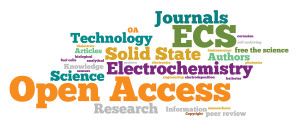
Image: CC0 Public Domain
South Korean universities have successfully negotiated a better pricing deal from publishing giant Elsevier, according to a report from Science Magazine. This deal comes after a standoff between the consortium of hundreds of institutions and the publisher, where database access contracts were refused due to exorbitant price increases.
Earlier this month as Elsevier threated to cut access to ScienceDirect, a database containing content from over 3,500 academic journals, the two parties came to an agreement of a subscription price hike of between 3.5 and 3.9 percent, instead of the initial 4.5 percent as pushed by Elsevier.
“We want Elsevier to abolish the minimum flat rate system, in which our universities have to pay for digital content that nobody reads,” Lee Chang Won, secretary general of the Korea University & College Library Association, told Science Magazine.
South Korea’s pushback against Elsevier follows the trend of many similar efforts still underway in Germany, including Projekt DEAL. While over 200 German institutions have already canceled their Elsevier subscriptions in protest of skyrocketing prices, the publisher has still not terminated access, looking to continue negations.


